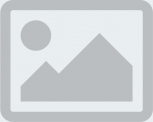
The panel. L to R: Gerbert van Loenen, Endre Bojtar, Arno Widmann, Arne Ruth and Hans Maarten van den Brink. Photo © Joanneke Lootsma, courtesy Felix Meritis Foundation
 Hans Maarten van den Brink. Photo courtesy Stimuleringsfonds Nederlandse Culturele Omroepproducties
Hans Maarten van den Brink. Photo courtesy Stimuleringsfonds Nederlandse Culturele Omroepproducties: Good evening, and welcome to tonight's panel discussion "Let's talk European! Beyond provincialism – Towards a European public sphere," hosted by signandsight.com, together with the Goethe-Institute Amsterdam, Post Amsterdam and Dare2Connect. To start off I would like to quote from the venerable Swiss newspaper the
Neue Züricher Zeitung, on the possibilities offered by the Internet: "One of the canonical ideas of the Enlightenment was that of a universal public space to which all intelligent humans could have access at any time or place. The Internet cultural platform
perlentaucher.de and its English service
signandsight.com show that this utopian idea is entirely realisable today." We will first try and introduce this utopian idea and its realisation with Thierry Chervel, one of the founders of signandsight.com and perlentaucher. Then we have four distinguished guests from four corners of Europe. Thierry Chervel, you founded
Perlentaucher, which is?
 Thierry Chervel. Photo © Dirk Bleicker
Thierry Chervel. Photo © Dirk Bleicker: Good evening and thank you.
Perlentaucher was founded seven years ago, when we had the idea of giving press reviews of the cultural pages of the German press on the Internet. In fact it was the fruit of our own discovery of the Internet. At one point we saw that all the German newspapers were online, as well as magazines like the
NYRB, which was difficult to get before that, and we thought: "Why should we do things that others do better, let's bundle what's there, let's do press reviews, let's say what's in the newspapers and in this way give a service to the German-speaking public."
Hans Maarten van den Brink: But your background was in traditional newspapers?
Thierry Chervel: I was a cultural editor at the
Tageszeitung, a left alternative newspaper in Berlin, then I was the Paris cultural correspondent for the
Süddeutsche Zeitung, a big newspaper based in Munich.
Hans Maarten van den Brink: And then a little over two years ago you founded
signandsight.com. What's the idea behind the site, and what's European about it? Because from what you say it sounds like it's limited to Germany.
Thierry Chervel: The idea is simple. Germany's quality press is excellent, but this is not so well-known abroad. So we said, let's translate some of the most important, most beautiful articles from the German cultural pages into English. One major advantage of the German press is that it is very open to international authors. If something happens like the Orange Revolution in Ukraine, you can be sure that 2 or 3 days after you'll have texts by Polish or Ukrainian or other Eastern European authors, and we translate them.
Hans Maarten van den Brink: In fact I've talked to publishers in Europe who say they rely on the German press to get their writers.
Thierry Chervel: That's right. Perhaps it's not so well known, but Germany is a very important bridge not only between Eastern and Western Europe, but also between the Eastern European countries themselves. Since the beginning our idea was to say, "Let's talk European." To say, let's translate these articles into English. Because we have to accept that the English language is a sort of universal bridge between cultures. And the other very important instrument for the internationalisation of the public sphere is the
Internet.
Hans Maarten van den Brink: How does the site work?
Thierry Chervel: One important aspect of
signandsight.com is the daily press review, which is very much based on
Perlentaucher's press review. It's called "In Today's Feuilletons." Feuilleton is the German word for cultural pages in the newspapers. There's a rather specific tradition in Germany, that the cultural pages are rather open to political issues, so the mix is cultural and political reflection. The other central element is that we then translate selected important articles appearing in the German press. If you look through our
author index, you can see all the authors we've translated in the last 2 years. There are some well-known German authors like Hans Magnus Enzensberger - we translated his essay on Islamism, "
The radical loser," into English. Or for example also Jürgen Habermas. An anecdote shows how this can work: we translated a speech by Habermas about Europe which was published originally in the
Kölner Stadtanzeiger. A day after it was published we got a call by an editor there who said 'Mr Habermas asked us to call
Perlentaucher and tell you we'd published his speech.' We saw it was a passionate and beautiful speech about Europe, and we asked Mr Habermas whether he would give us the rights to translate it. We did this and a day later we got a call from
Le Monde, who wanted to publish it in French. And this is the way this can work, this European public space.
Hans Maarten van den Brink: You must show us the links. These are to the original reviews?
Thierry Chervel: If the article we've translated is freely accessible online - and this isn't always the case - we always give a link to the article in the original language. This is very important because as the example with Habermas shows, the fact that we translate things into English doesn't mean that we are a sort of vector of globalisation and Anglicisation of the world. I think that English has to be used as a bridge to universal communication. It's not at all against the other, the original languages. On the contrary, it's a way to intervene in an international concert of voices and to make ideas heard that wouldn't be known without this English translation.
Hans Maarten van den Brink: You opened signandsight.com with a
manifesto.
Thierry Chervel: Yes. There I explained the disadvantages European countries face by failing to see each other. The French don't look to Germany, and the Germans don't look to France. They all look to America in a sort of morbid fascination. And something like a European public sphere doesn't exist any more. And I think there's only one way to get over this problem, and that is to speak English.
Hans Maarten van den Brink: May I now invite the four participants in our debate, Arne Ruth, Arno Widmann, Endre Bojtar and Gerbert van Loenen, to come up front? Once more, all four of you, thank you for being with us. I'd like to start the discussion by asking you to briefly introduce yourselves, and comment on what Thierry Chervel just said about the use of English. Arne Ruth.
 Arne Ruth. Photo courtesy Mr Ruth
Arne Ruth. Photo courtesy Mr RuthArne Ruth: Well, when I'm in America, everyone thinks I'm a relative of Babe Ruth, who is the most famous American, so I cannot avoid being Anglicised whenever I'm there. I'm not ashamed of it. I'm from Sweden, where due to the general opportunism and adapting to the world situation, and also the fact that films are not dubbed, a three-year-old has already learned the first words of English. That's excellent. I mean being bilingual in the sense that you use English as something natural is really an advantage. Of course national languages, or for that matter regional languages, are also very important. I learned English at an early stage, but still, whenever I want to write something truly personal, I use Swedish. And that's always going to be the case. The language you learn as a small child will remain the deepest layer, and so it should.
Now as to what Thierry said, I think he has luckily acted against a provincialism built into the profession of journalism. As a journalist, I want to achieve stature, I want to be the sole proprietor of a story. And if I have to admit that an idea for a story actually emerged from somewhere else in Europe, I usually hide it. You try to conceive matters as if they were your own invention. And there's a collective element in this as well. On the national level, journalists may compete terribly against each other, but when it comes to guarding the national realm and not admitting they're inspired by other countries, there's a solid body of agreement. Journalists have to appear on the stage all the time. And of course I'm like that myself. We're narcissists in that sense. But through the Internet, this stature of journalists is rapidly eroding. As a democrat - and I have to say although it may be schizophrenic I'm a democrat as well - I think it's positive. Decreasing the presumed stature of journalists as the sole provider of opinions, positions and interpretations is very good.
Hans Maarten van den Brink: Are you saying that traditional journalism and democracy are not on on the same footing?
Arne Ruth: Not always. But journalism as it is now also has its advantages. During my 16 years as chief editor of
Dagens Nyheter, we had regular discussions with readers of the newspaper. Whenever we wanted to make a big change, we brought the changes to this group of readers - usually a dozen of them - and they read it, considered it, and then we had a discussion. I learned you should never underestimate the sophistication of your readers. You could very often overestimate their knowledge of specific subjects. But when it came to understanding the weaknesses of the new concept, I learned a lot. Even though sometimes they don't even know what they want until they get it! In order to make a good newspaper, there also has to be an element of surprise. On a regular basis.
Hans Maarten van den Brink: Thank you. Now to Arno Widmann.
 Arno Widman: Photo courtesy Mr Widmann
Arno Widman: Photo courtesy Mr WidmannArno Widmann: Well it's a pity we have to use English, because my English is so bad I can't even make myself understood. But it's the only way to understand what's happening, because most people in the world talk English. And most of those who use the Internet use it in English. Maybe it's not the way to talk European, but it is to talk with people all over the world. When I started looking into the Internet, the first page that really excited me was about Ingmar Bergman. I discovered a discussion between a teenage girl of about 17 in Mexico, and a teenage boy in Michigan. And how lost they felt in their surroundings with their love for Ingmar Bergman. I was 16 when I first saw films by Ingmar Bergman, and I was alone in a small village in Germany. And so the Internet is a marvellous place to find people with the same love.
Hans Maarten van den Brink: And your profession?
Arno Widmann: You must imagine, for an old man like me, when I started in journalism, it was impossible to read Mexican papers, because you had to wait for a fortnight to get them. Now you can read them on the same day. You open your laptop and you get
La Jornada, and you get the African papers. And you get
Le Monde and the European papers. Our profession has radically changed, but the thing is, we haven't changed. We don't use these things as we should, and as we could, and as readers do. They are - a lot of them - far more ahead than we are. About my career: I started in '79, and there was not a single newspaper I wanted to work for, so I founded one, the left wing
Tageszeitung, where I met Thierry for the first time. And after this I was deputy chief editor of the German
Vogue Magazine, then I worked for the cultural pages of
Die Zeit, and now I work on the cultural pages of the
Frankfurter Rundschau.
Hans Maarten van den Brink: Thank you. Now to Endre Bojtar. You are editor in chief of the Hungarian newspaper
Magyar Narancs.
 Endre Bojtar. Photo courtesy Foundation for Quality Journalism Hungary
Endre Bojtar. Photo courtesy Foundation for Quality Journalism Hungary: Yes,
Magyar Narancs is a weekly liberal-left magazine. As far as the use of English is concerned, I feel like speaking on behalf of 80 million citizens of the European Union, that is the newcomer countries, whose second language is mostly English, if they have any at all. On a very practical level it's a fact that in the European Union the first language is English. But if we wanted to change this, we would exclude many people from the Eastern part of the Union who don't speak French or German. If you don't speak English, if you try to speak your own national language, then you exclude them. Now, as far as
signandsight.com is concerned, as a journalist it's among my favourite websites. But I always wondered when using it why I never saw a single ad. That worried me, because once the funds dry up, - let it never happen - what will happen to you, and what will happen to me, as your consumer? I also wonder why don't you want to be more ambitious, why you don't write op-ed pieces, and why you don't want to be more than a meta-editor?
Thierry Chervel:
signandsight.com is funded by the Kulturstiftung des Bundes, which is a foundation of the government. We're funded until September, and we are now looking for new financial partners. This is a fund-raising evening, you understand. And as to why we do what we do, we started very much as a site that bundled the contents of others. I found this much more interesting than to articulate a further opinion. That doesn't mean that we don't have opinions, but we wanted to highlight contents by others.
Hans Maarten van den Brink: Now we come to Gerbert van Loenen, deputy chief editor of
Trouw.
 Gerbert van Loenen: Photo © Joanneke Lootsma, courtesy Felix Meritis Foundation
Gerbert van Loenen: Photo © Joanneke Lootsma, courtesy Felix Meritis FoundationGerbert van Loenen: Let me start with the language. I'm afraid of this site. It's a danger to me because it may cost me my job. Over the last years I've applied one trick as a journalist. I've found that most of the Dutch journalists watch
BBC World Service, they read the
International Herald Tribune and
The Economist and then they decide what to do. My trick was to read German, French and Italian papers. So if you start translating all this stuff into English, I'll lose my job. The good thing is that in the past of course people used English as a bridge to other European countries. But most of the time you had to read - for instance as a Dutch journalist - a British or American newspaper or magazine or TV programme. So in a way, your view on other European countries was always biased. You were reading
The Wall Street Journal, and it is in a way very biased. Of course it's a fantastic newspaper, but it's very American. So if you depend for your knowledge of Romania, for instance, on
The Wall Street Journal, you are very biased. It's of course fantastic if you can read all the good articles written about Romania by German journalists or by Romanian journalists themselves. So I think it's a great possibility to use English on the Internet, because it enables non-English speakers to get to know each other better.
Hans Maarten van den Brink: I would say it's not a matter of bringing people to an equal level, but if we all spoke English, it would in fact stop the Anglicisation in the media and in our culture. If we don't, we'll all read what they think, and hear it and see it. But if we do, they'll also hear us.
Arno Widmann: I think it depends on what we say. You're right, we have to say it, and we have to translate it, but the impact of what we're doing depends far more on what we have to say. Here's an example. There's a new film, "
300" by Zack Snyder, and a new
film by Zhang Yimou about a rebellion in the Tang Dynasty. And so far, not a single paper has compared both movies. Both try to reconstruct national identities. "300" tries to tell a story about the foundation of Europe. And the other film is about how a country functions after a failed revolution. If we want to say something, first of all we have to understand something. And then we can translated it. But here in Europe we live so nicely. I've just come from Zurich on my way to Amsterdam. They mayor of Zurich said, we have no debts, nothing. Next year we'll lower the taxes. That's a situation nobody in the world can dream of. We have no stimulus to consider the real problems that are happening. And so I'm very doubtful that we, with our thoughts, will enrich what is going on.
Arne Ruth: But you also shouldn't romanticise what it means that English is used as a means of communication. You have to see the potential of a project like this: People who are dealing with cross-border issues like journalists, will find that it is of use to check what is going on in other places, because they can write better stories. And that results in articles in the national languages, which means that people in these countries will have a chance of getting a better perspective of what is going on. It's a matter of raising the level of sophistication of journalism by having interconnectivity which is not present to the extent that it deserves to be in the national journalism of today.
Hans Maarten van den Brink: But speaking English actually counters the dominance of the English-speaking media?
Arne Ruth: It does in the sense that there's no way of defining in advance what position, what interpretation of what is going on will eventually become a universal perspective. The more chances it has of reaching a non-national level, the better. The greater the multiplicity of attitudes and interpretations, the better. But of course that means we have to take an interest in what's being said in the United states as well. If we make available more positions relating for instance to what was stated by American authors, so much the better. As of today the celebrities - in terms of making opinions - tend to be Americans. I mean, people like Francis Fukuyama and Samuel Huntington are read and discussed all over Europe. And there is very little interconnectivity between national discussions in terms of celebrities.
Gerbert van Loenen: That's absolutely the point. The Internet and the use of English enable us to know what other people from minority languages in Europe are writing and thinking. So this is a great opportunity. And using English actually liberates us from the dominance of the Anglo-Saxon media. It's a paradox, but it's true.
Endre Bojtar: In fact, I don't have the same fixation with Anglo-Saxon media. These little cultures, the Balkan countries, Slovakia, the Czech Republic, are traditionally so closed and self-centred. This is understandable and there are many reasons for it. But let's face it, the most important thing is that to be a real European reader, you have to do nothing but read the whole day. And where do you earn your money if you're not a journalist?
Hans Maarten van den Brink: So this is why we need
signandsight.
Gerbert van Loenen: I think that what you said is right, in a way. Smaller newspapers as well as smaller nations can benefit from this development, from this idea of translating all or our interesting content. And that's the good thing about the Internet: power is spreading. So this is really our chance, it's a good chance for smaller nations, for people from smaller languages and from smaller newspapers.
Arne Ruth: I too am an optimist. But this means that professional journalism has to be redefined. We journalists have to realise we don't have a monopoly on defining issues, that there is going to be a lot of writing and a lot of statements and a lot of positions taken, of varying quality. But in general, the pluralism of this is an advantage, and certainly something that we as journalists can also use as a resource. The point is that our profession has to raise the level of sophistication in using all of this, abstaining from being provincial both on the national and on the personal level, provincial in the sense that we believe in the monopoly position of our profession.
But I'd like to add something to your point about the advantages to smaller nations. In the late 1980s I was involved in a project which had its zenith in Holland. Editors from 12 European newspapers stayed for a week at
NRC Handelsblatt, and produced an issue of a European combined effort. There was the idea that we should combine our resources and make a sort of weekly our various reportings. We had great fun, we spent one and a half days acting as practical editors, we brought all the issues from the last week of our various newspapers. When it ended and we had actually made a trial issue, it seemed that it wasn't a completely false idea. The group divided into the small-nation newspapers and the big-nation newspapers. And the newspapers from the small nations were very interested - and that went for
NRC Handelsblatt as well - while France, Germany, Britain, weren't.
Hans Maarten van den Brink: Can you give a clear definition of what fits better in the Internet, what fits better in print? And is it true that the Internet accounts for more flawed writing?
Arno Widmann: I think you can write never-ending articles in the Internet.
Hans Maarten van den Brink: But can you read never-ending articles in the Internet?
Arno Widmann: Who the hell knows? We have an Internet edition of our paper, and we have a paper edition. The problem is that the chief editor of the Internet edition is more interested in the funny things. He says it's for a young public and they are interested in
Knut the polar bear in Berlin's zoo. But when we have a big article by a famous person about globalisation taken from
Foreign Affairs, they say people won't read it. But they do. It's an illusion to think that people who use the Internet don't want to read more than 50 lines.
Arne Ruth: What makes this discussion so interesting is the interrelationship between what's printed on a website and what then appears in the newspapers. It's the sort of dialectics between these two dimensions that's the potential future development. What's published on a website in terms of cross-border discussions will then influence positions or comments in national newspapers. And that will in itself then reappear on the website. That is my hope for the future, that you don't make a solid distinction between these two levels.
Hans Maarten van den Brink: Once the Washington correspondent for
Die Zeit, Thomas Kleine Brockhoff, said to me that what's frustrating to him as a correspondent in the US, still the mightiest power in the world, is that he reports on what they think there, but when somebody wakes up in the White House in the morning, there's no way of him or her to know what Europe thinks. Maybe they know what people think in London about world affairs. Or if they're smart and have the resources, in Paris or Berlin. But there's no Europe to the outside world. Is it very utopian to think that we might create that with the help of this sort of device?
Arno Widmann: We had a European answer, and we had a European public surrounding one issue, that was the Iraq War. The Americans had an answer from Europe. In fact they had two answers, or even three, and I think it will be like that until the next explosion of I don't know what.
Arne Ruth: This is a continent of various views. and that's what makes it interesting.
Hans Maarten van den Brink: But so is the US. Are the public sphere and the institutions so connected?
Thierry Chervel: At the moment there is only one paper in Europe which would be capable of founding a European newspaper and making a profit with it, and that is
The New York Times. Because they have the
International Herald Tribune, and with some editors they could create a real European newspaper if they wanted to.
signandsight.com is an initiative which doesn't come from the United States that can contribute to creating a public space. But at the moment we need funding.
Hans Maarten van den Brink: A question from the audience.
Question 1: I think we can all agree, we could have called this meeting "Let's talk English." I would like to talk about the sentence beneath it. I'm Dutch, so I'm a Euro-sceptic. You say, "Beyond provincialism, towards a European public sphere." I say, a European public sphere is just another level of provincialism. The Internet is global. The world is globalised. Those are the things I think we should talk about now. And talking about a European public sphere is closing your eyes to the rest of the world. We shouldn't do that, we should open our networks, not just for Bulgarian or Polish papers, but we should invite American journalists, we should invite journalists from Afghanistan, and then we'll have a debate that's really interesting.
Hans Maarten van den Brink: Another question?
Question 2: An answer to the Euro-sceptic. I am rather an Internet sceptic. I would like to say that getting in contact with people all across the world is the good thing about the Net, but building something called the "European public sphere" is something that has to do with living together, and not something you can do with someone very far away. And I'm scared of the immaterial, and the irresponsible way you can be with someone on the Internet.
Hans Maarten van den Brink: One last question.
Question 3: I want also to respond to the remark about a new kind of provincialism. I think that being European is not a new kind of barrier, not a provincialism, because you can consider yourself to be a citizen of the world - me too - by being European. Just like being a good citizen of my nation, of my country, is my way of being European. And in my country, I just do my job as well as I can, and have a good family and so on. These are different levels of self-identity.
Hans Maarten van den Brink: Thank you very much.
Get the signandsight newsletter for regular updates on feature articles.
signandsight.com - let's talk european.![]() more
more
 Hans Maarten van den Brink. Photo courtesy Stimuleringsfonds Nederlandse Culturele Omroepproducties
Hans Maarten van den Brink. Photo courtesy Stimuleringsfonds Nederlandse Culturele Omroepproducties Thierry Chervel. Photo © Dirk Bleicker
Thierry Chervel. Photo © Dirk Bleicker Arne Ruth. Photo courtesy Mr Ruth
Arne Ruth. Photo courtesy Mr Ruth Arno Widman: Photo courtesy Mr Widmann
Arno Widman: Photo courtesy Mr Widmann Endre Bojtar. Photo courtesy Foundation for Quality Journalism Hungary
Endre Bojtar. Photo courtesy Foundation for Quality Journalism Hungary Gerbert van Loenen: Photo © Joanneke Lootsma, courtesy Felix Meritis Foundation
Gerbert van Loenen: Photo © Joanneke Lootsma, courtesy Felix Meritis Foundation